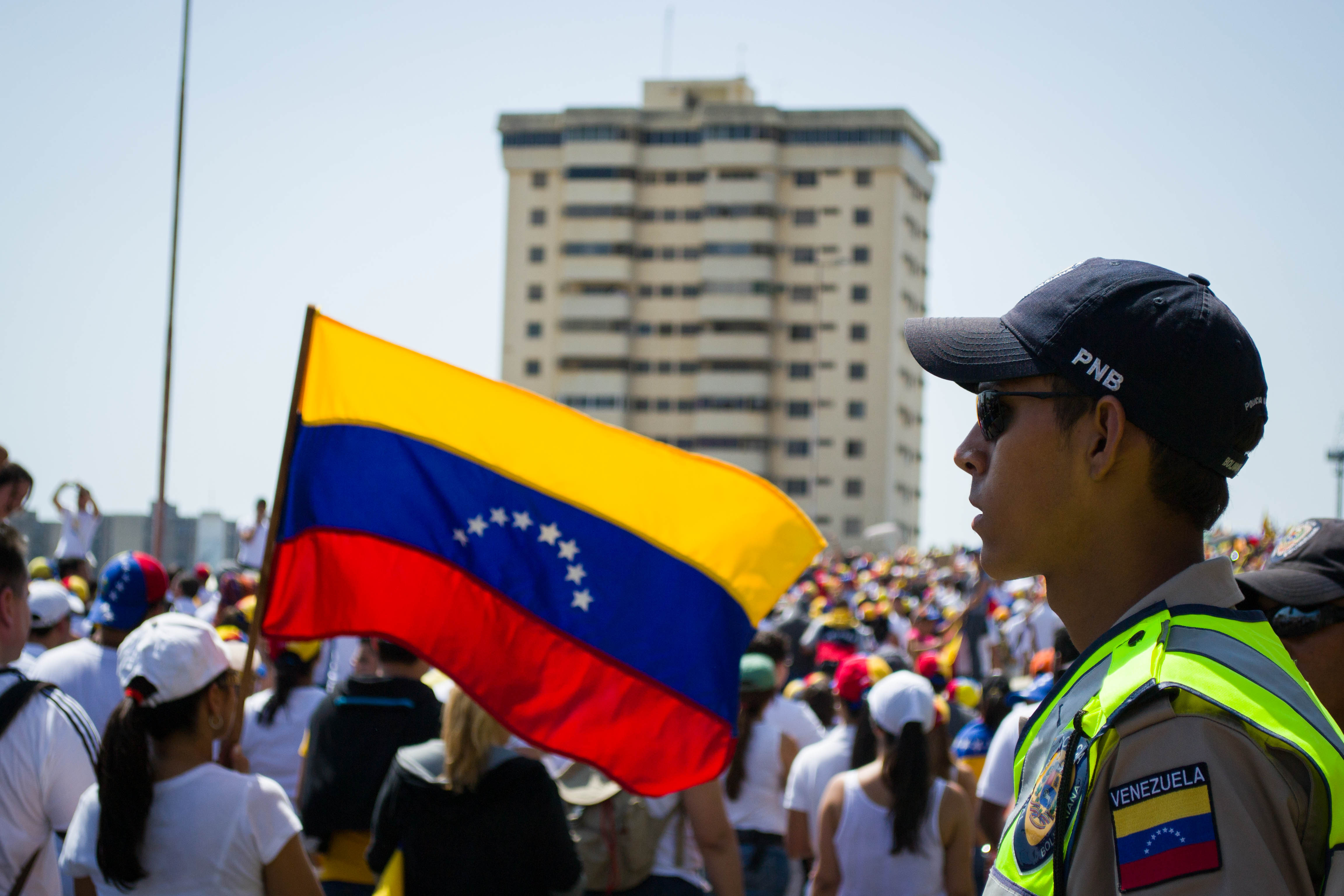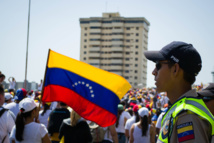Now, Venezuela is waiting for six weeks with power consumption constraints. Within 40 days, starting from Monday, 25 April, the electricity supply in most parts of the country will be turned off for four hours a day, writes The Wall Street Journal.
All of this was triggered by an unprecedented drought. The lack of water made the largest Venezuelan hydro power plant El Guri run at minimum capacity. According to various estimates, the HPP provides from 40 to 65% of capacity.
Now, the water in the reservoir has reached a critical level - 242.7 meters above sea level. The operational minimum is 240 m.
The rationing will affect those who consume the most energy. Among them are 10 most populous states and 23 major cities, including some areas of the capital Caracas, said the Minister of Electricity Luis Motta Dominguez. The shutdown will take place from noon to 8 pm.
According to the authorities, almost 60% of total consumption falls to the private sector. The announced restrictions are necessary to reduce energy and water consumption in homes, while the government waits for good weather.
"We call on all Venezuelans for the cooperation. It is time to show patriotism and unite to overcome the climatic factor "- the minister said.
Rains have already come to some regions of the country - local officials had literally prayed for that. Yet so far, it has not solved the aridity problem.
Electricity on the schedule is not the only effort that the Latin American country made in an attempt to stabilize the situation. For example, they declared civil servants free from work five days a week. Shopping centers were obliged to close earlier and some had to shift to the auto generation, BBC reported.
At the same time, the citizens were asked to temporarily abandon the use of the appliances. For example, Venezuela's President Nicolas Maduro advised women not to use hair dryers. "I always thought that a woman looks more attractive when she combs and dry hair with her fingers, in a natural way," - quoted by media. He also offered to dry clothes on the street rather than use special functions of washing machines.
Among recent measures – setting clock half an hour ahead in mid-April. The waking period is now slightly better adjusted to the daylight. However, the number of people who need to get to work in the dark increased at the same time.
All this did not waken patriotism in the citizens. The shutdowns are not the only problem there.
"The Venezuela’s time-zone: hours without light, without water, hours of the President's broadcasts, hours in queues" - quoted by The Guardian.
The drought was naturally followed by interruptions in water supply, which is currently limited to a few hours three times a week. At the same time, the residents complain that the water is very dirty, with a pronounced yellow color. Tanks of water, which the authorities sent to fight the drought, are regularly looted. "Two or three times a week, the machines that we send are stopped by gangs. They force drivers to change the route and empty tank on the territory under their control ", - told a local official to Bloomberg.
Forest fires and dust storms came with the drought caused by the weather phenomenon "El Niño". This led to growing respiratory diseases and increased the demand for scarce medicines.
Basic goods are also becoming increasingly difficult to obtain. Due to triple-digit inflation, products in state stores are issued on cards. The national currency depreciated the black market raised speculative prices. As a result, Venezuela fell under the influence of several adverse weather and economic factors.
Oil sales accounted for 95% of budget revenues. Therefore, foreign exchange earnings, given the sharp drop in oil prices, severely reduced.
Now the barrel of Brent is trading at $ 45, which is more than 2.5 times lower than the values of July 2014, when prices began to fall. Recall, then the barrel was estimated at $ 110. In 2015, the price per barrel decreased by approximately 34%, from $ 55.38 in early January to $ 36.6 at the end of December. Now the prices are even on the rise - in January 2016, they fell to $ 28.
Lack of petrodollars affected production, too. For example, the largest brewing company in Venezuela Empresas Polar (it accounts for 80% of beer in the country) said that it would have to stop production due to lack of funds to pay for barley. 10 out of 30 thousand employees can get temporary vacation.
According to forecasts of the International Monetary Fund (IMF), the Venezuelan economy can be reduced by 8%, and inflation - reach 720% in the current year.
All of this was triggered by an unprecedented drought. The lack of water made the largest Venezuelan hydro power plant El Guri run at minimum capacity. According to various estimates, the HPP provides from 40 to 65% of capacity.
Now, the water in the reservoir has reached a critical level - 242.7 meters above sea level. The operational minimum is 240 m.
The rationing will affect those who consume the most energy. Among them are 10 most populous states and 23 major cities, including some areas of the capital Caracas, said the Minister of Electricity Luis Motta Dominguez. The shutdown will take place from noon to 8 pm.
According to the authorities, almost 60% of total consumption falls to the private sector. The announced restrictions are necessary to reduce energy and water consumption in homes, while the government waits for good weather.
"We call on all Venezuelans for the cooperation. It is time to show patriotism and unite to overcome the climatic factor "- the minister said.
Rains have already come to some regions of the country - local officials had literally prayed for that. Yet so far, it has not solved the aridity problem.
Electricity on the schedule is not the only effort that the Latin American country made in an attempt to stabilize the situation. For example, they declared civil servants free from work five days a week. Shopping centers were obliged to close earlier and some had to shift to the auto generation, BBC reported.
At the same time, the citizens were asked to temporarily abandon the use of the appliances. For example, Venezuela's President Nicolas Maduro advised women not to use hair dryers. "I always thought that a woman looks more attractive when she combs and dry hair with her fingers, in a natural way," - quoted by media. He also offered to dry clothes on the street rather than use special functions of washing machines.
Among recent measures – setting clock half an hour ahead in mid-April. The waking period is now slightly better adjusted to the daylight. However, the number of people who need to get to work in the dark increased at the same time.
All this did not waken patriotism in the citizens. The shutdowns are not the only problem there.
"The Venezuela’s time-zone: hours without light, without water, hours of the President's broadcasts, hours in queues" - quoted by The Guardian.
The drought was naturally followed by interruptions in water supply, which is currently limited to a few hours three times a week. At the same time, the residents complain that the water is very dirty, with a pronounced yellow color. Tanks of water, which the authorities sent to fight the drought, are regularly looted. "Two or three times a week, the machines that we send are stopped by gangs. They force drivers to change the route and empty tank on the territory under their control ", - told a local official to Bloomberg.
Forest fires and dust storms came with the drought caused by the weather phenomenon "El Niño". This led to growing respiratory diseases and increased the demand for scarce medicines.
Basic goods are also becoming increasingly difficult to obtain. Due to triple-digit inflation, products in state stores are issued on cards. The national currency depreciated the black market raised speculative prices. As a result, Venezuela fell under the influence of several adverse weather and economic factors.
Oil sales accounted for 95% of budget revenues. Therefore, foreign exchange earnings, given the sharp drop in oil prices, severely reduced.
Now the barrel of Brent is trading at $ 45, which is more than 2.5 times lower than the values of July 2014, when prices began to fall. Recall, then the barrel was estimated at $ 110. In 2015, the price per barrel decreased by approximately 34%, from $ 55.38 in early January to $ 36.6 at the end of December. Now the prices are even on the rise - in January 2016, they fell to $ 28.
Lack of petrodollars affected production, too. For example, the largest brewing company in Venezuela Empresas Polar (it accounts for 80% of beer in the country) said that it would have to stop production due to lack of funds to pay for barley. 10 out of 30 thousand employees can get temporary vacation.
According to forecasts of the International Monetary Fund (IMF), the Venezuelan economy can be reduced by 8%, and inflation - reach 720% in the current year.



















